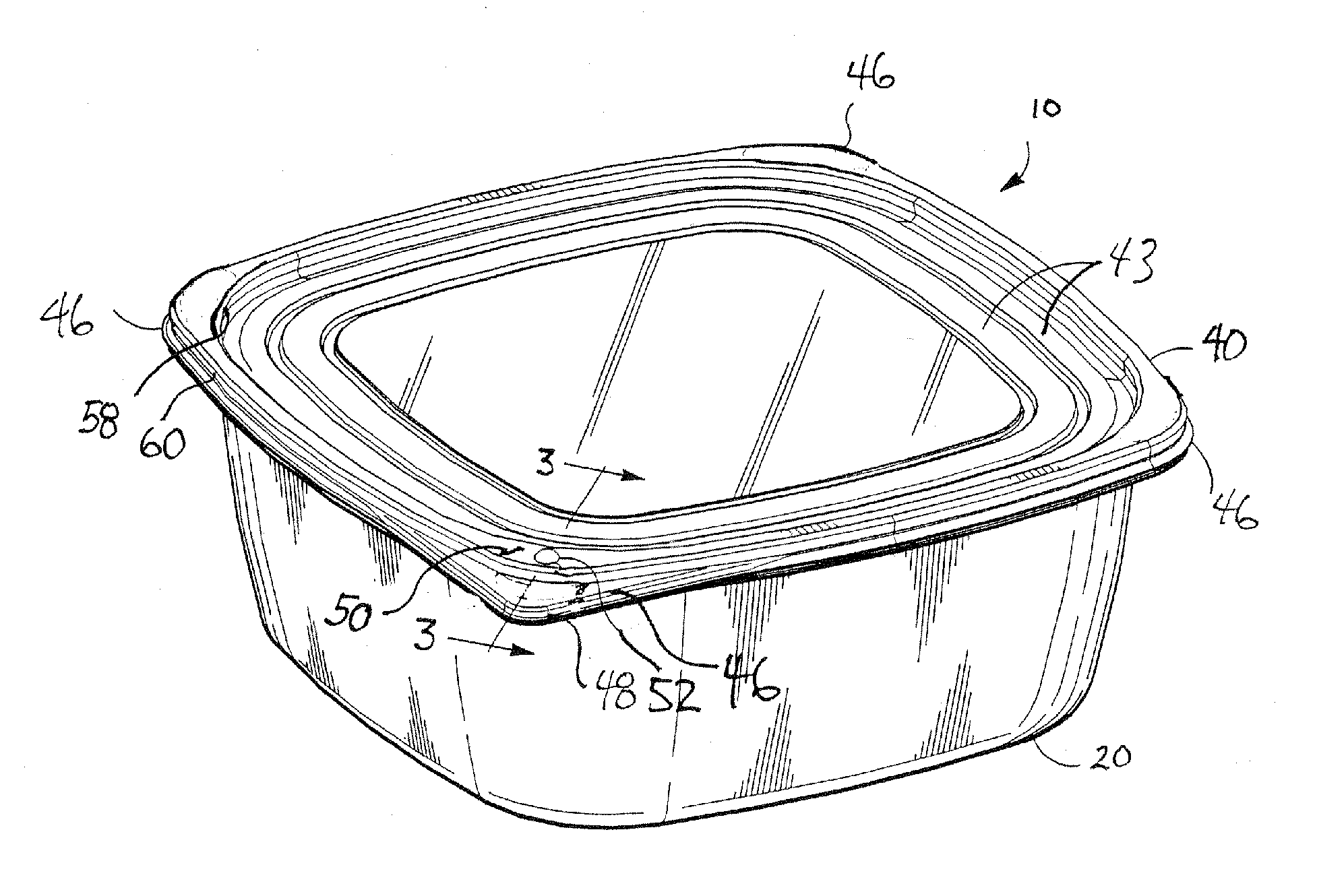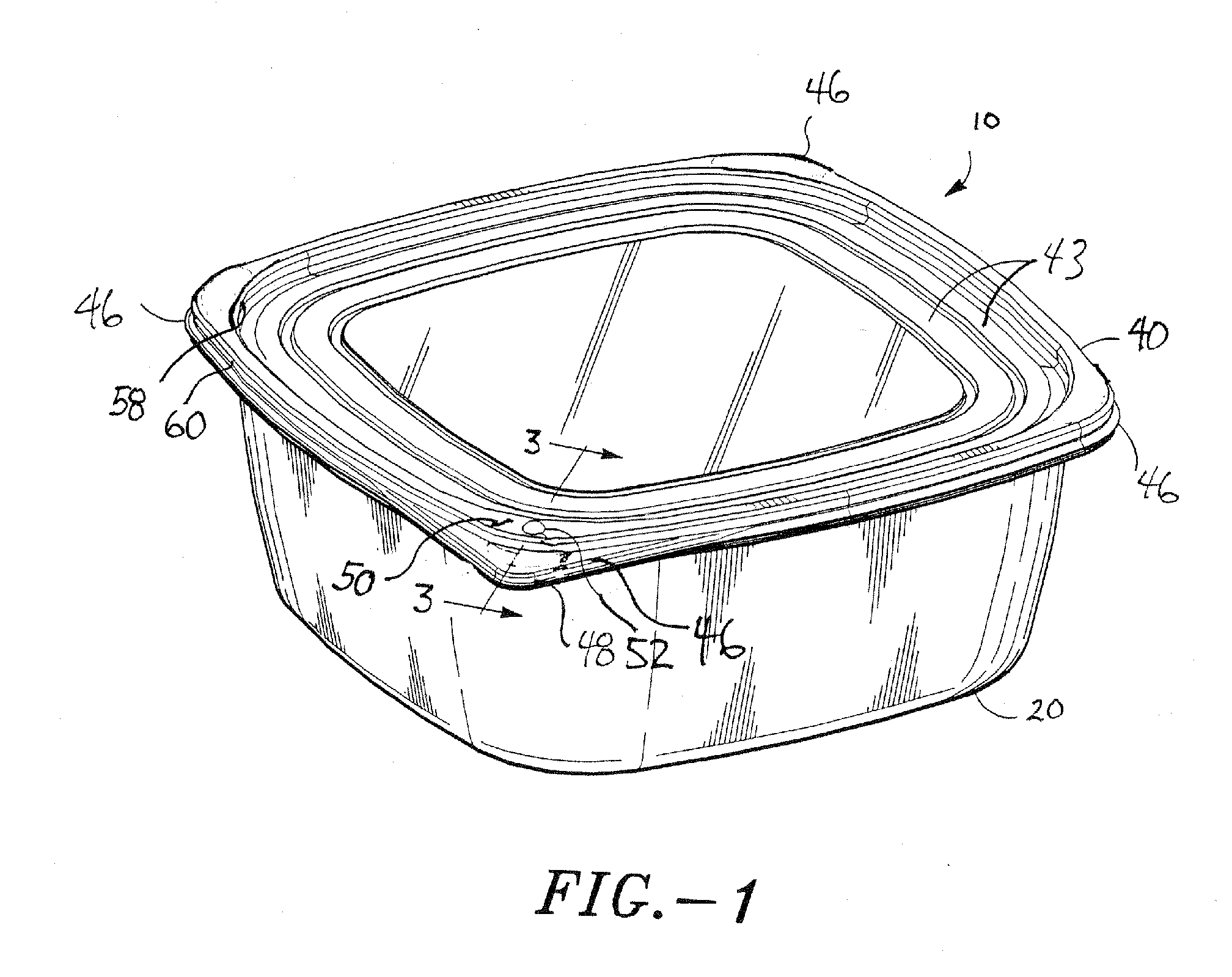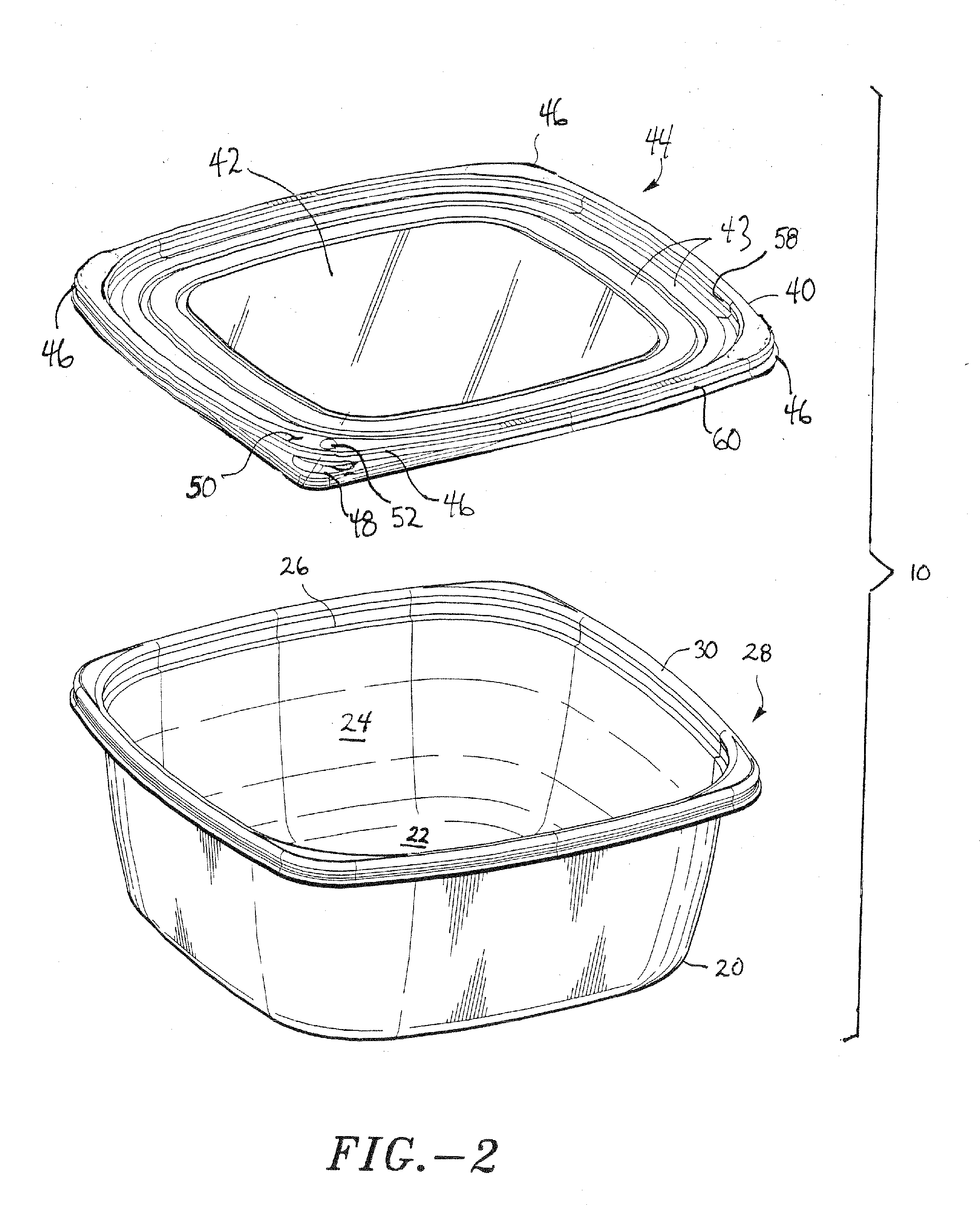Venting Container
a technology of food storage containers and venting containers, which is applied in the direction of caps, liquid handling, transportation and packaging, etc., can solve the problems of poor ability to accommodate a desired amount of produce respiration, added cost and complexity in the manufacture of containers, plastic, microwavable containers, etc., and achieves simple operation and prevent the contents of the container from splattering. , the effect of reducing or eliminating the disadvantages and drawbacks
- Summary
- Abstract
- Description
- Claims
- Application Information
AI Technical Summary
Benefits of technology
Problems solved by technology
Method used
Image
Examples
Embodiment Construction
[0026]Unless defined otherwise, all technical and scientific terms used herein have the same meaning as commonly understood by one having ordinary skill in the art to which the invention pertains.
[0027]Turning to the drawings, wherein like reference numerals refer to like elements, a first embodiment of the present invention is illustrated in FIGS. 1 and 2. A container 10 includes a container base 20 and a flexible container lid 40. In the example shown in the Figures, the container 10 is depicted as substantially square with rounded corners. In other embodiments of the present invention, the container 100 has other shapes such as rectangular, circular, or elliptical.
[0028]The container base 20 has a bottom 22 and a sidewall 24 extending from the periphery of the bottom 22. At the termination of the sidewall 24 an outwardly and substantially horizontally extending denesting shoulder 26 is provided, which merges into the base of a closure portion 28. The closure portion 28 has a gene...
PUM
| Property | Measurement | Unit |
|---|---|---|
| rotation | aaaaa | aaaaa |
| shape | aaaaa | aaaaa |
| temperature | aaaaa | aaaaa |
Abstract
Description
Claims
Application Information
 Login to View More
Login to View More - R&D
- Intellectual Property
- Life Sciences
- Materials
- Tech Scout
- Unparalleled Data Quality
- Higher Quality Content
- 60% Fewer Hallucinations
Browse by: Latest US Patents, China's latest patents, Technical Efficacy Thesaurus, Application Domain, Technology Topic, Popular Technical Reports.
© 2025 PatSnap. All rights reserved.Legal|Privacy policy|Modern Slavery Act Transparency Statement|Sitemap|About US| Contact US: help@patsnap.com



